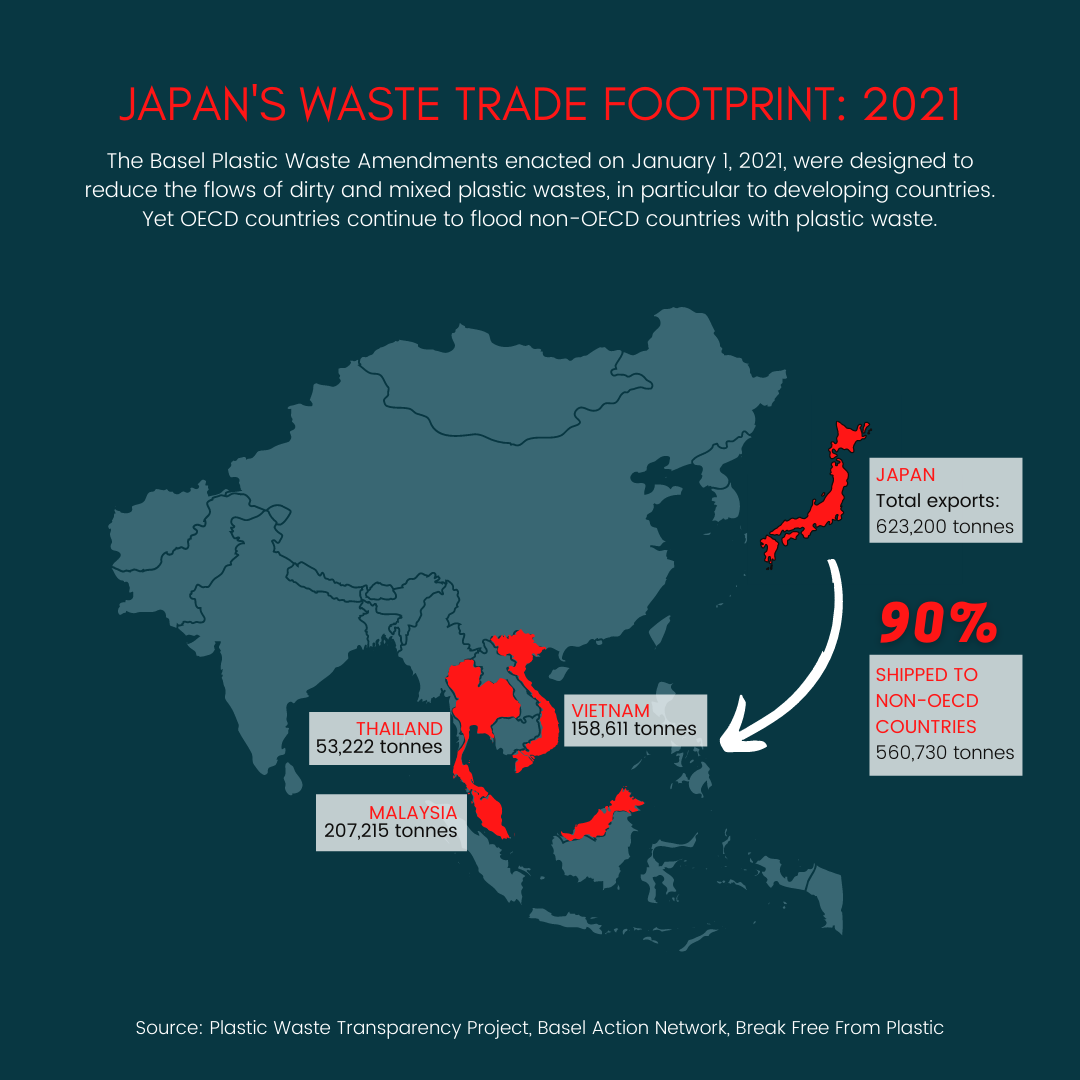Last week, Basel Action Network (BAN) released the March 2022 edition of their excellent Plastic Waste Trade Watch newsletter which shows how OECD countries continue to send plastic waste to non-OECD countries. Australia exported 108,603 tonnes of plastic waste in 2021, while thousands of tonnes of plastic waste were shipped from the UK, US, and Germany to non-OECD countries in January 2022.
While western developed countries are infamous as plastic waste exporters, February 2022’s edition of the newsletter caught our eye. In 2021, Japan exported more plastic waste compared to the UK, US, and Canada – 623,200 tonnes in total, with 560,730 tonnes (90%) shipped to non-OECD countries!
In December 2021 alone, Japan exported:
• 115 TEU shipping containers PER DAY to Malaysia (18.3 million kg/month).•
• 109 TEU shipping containers PER DAY to Vietnam (17.4 million kg/month).
• 30 TEU shipping containers PER DAY to Thailand (4.7 million kg/month).
*Note: TEU = twenty-foot equivalent unit

A 2015 study examined countries’ annual tonnes of mismanaged plastic waste and the total waste which ended up in the ocean. The top 8 countries globally with mismanaged plastic waste were China, Indonesia, the Philippines, Vietnam, Sri Lanka, Thailand, Egypt, and Malaysia.
Why is Japan sending plastic waste to countries that cannot manage plastic waste?
These countries are ill-equipped in terms of infrastructure and technology to handle their domestic plastic waste – imported waste adds to this burden. Environmental Investigation Agency (EIA)’s report stated that Malaysia produces about 2.4 million tonnes of plastic waste per year and imports on average 835,000 tonnes per year (five-year average over 2016-20). Meanwhile, the annual capacity of all recycling facilities is currently just 515,009 tonnes.
This means there is a 2.7 million tonne discrepancy between what is produced and imported versus what is responsibly managed.
Countries with large shipments of imported plastic waste have some of the highest mismanagement rates globally. Plastic waste mismanagement leads to leakages into the environment via rivers, wind, waves, and tides, with severe implications for biodiversity in terrestrial and aquatic ecosystems.
The Basel Convention Plastic Waste Amendments* aimed to limit exports of plastic waste from OECD to non-OECD countries, yet Japan’s exports have not abated. Worse still, between January to April 2021, Japan’s exports to non-OECD countries increased by 39.2%. Flouting legal and ethical norms, they continue to ship their waste to poorer countries.
* Read more about Basel plastic waste trade violations at BAN’s Plastic Waste Transparency Project.



